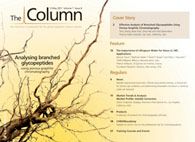African drug testing training
Scientists from the national laboratories of five African nations, including participants from Ethiopia, Ghana, Kenya, Senegal and Sierra Leone, have gathered in Accra, Ghana, Africa, to take part in technical training for detecting substandard and counterfeit medicines.
Scientists from the national laboratories of five African nations, including participants from Ethiopia, Ghana, Kenya, Senegal and Sierra Leone, have gathered in Accra, Ghana, Africa, to take part in technical training for detecting substandard and counterfeit medicines. The training is part of a technical assistance programme announced earlier this year and funded by the US Pharmacopeial Convention, a nonprofit public health organization that sets standards for the identity, quality, purity and strength of prescription and over-the-counter medicines.
Under the programme, the US organization is providing a comprehensive package of pharmaceutical reference standards, documentary standards and technical training to assist these countries in improving the quality of their medicines. The training focuses on three key topics necessary to appropriately test medicines quality — Fundamentals of High Performance Liquid Chromatography, Microbiology and Effectively Using USP–NF (the organization’s drug compendia).
“With inferior medicines threatening the lives of citizens every day in Africa, it is essential for governments to be equipped with the tools necessary to accurately gauge the quality of the medicines circulating in their markets” said Patrick Lukulay, director of the Promoting the Quality of Medicines Program. “Having a team of scientists trained in essential analytical techniques is a fundamental aspect of a well-functioning regulatory system that protects the domestic drug supply,”
This story originally appeared in The Column. Click here to view that issue.
New TRC Facility Accelerates Innovation and Delivery
April 25th 2025We’ve expanded our capabilities with a state-of-the-art, 200,000 sq ft TRC facility in Toronto, completed in 2024 and staffed by over 100 PhD- and MSc-level scientists. This investment enables the development of more innovative compounds, a broader catalogue and custom offering, and streamlined operations for faster delivery. • Our extensive range of over 100,000 high-quality research chemicals—including APIs, metabolites, and impurities in both native and stable isotope-labelled forms—provides essential tools for uncovering molecular disease mechanisms and exploring new opportunities for therapeutic intervention.
New Guide: Characterising Impurity Standards – What Defines “Good Enough?”
April 25th 2025Impurity reference standards (IRSs) are essential for accurately identifying and quantifying impurities in pharmaceutical development and manufacturing. Yet, with limited regulatory guidance on how much characterisation is truly required for different applications, selecting the right standard can be challenging. To help, LGC has developed a new interactive multimedia guide, packed with expert insights to support your decision-making and give you greater confidence when choosing the right IRS for your specific needs.

.png&w=3840&q=75)

.png&w=3840&q=75)



.png&w=3840&q=75)



.png&w=3840&q=75)











